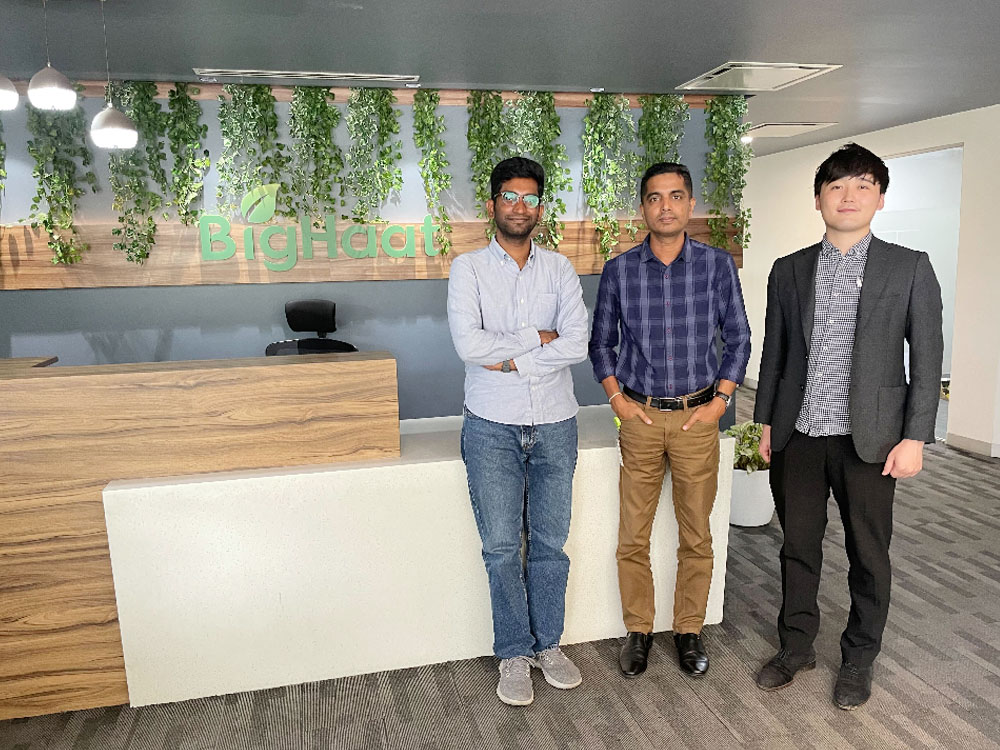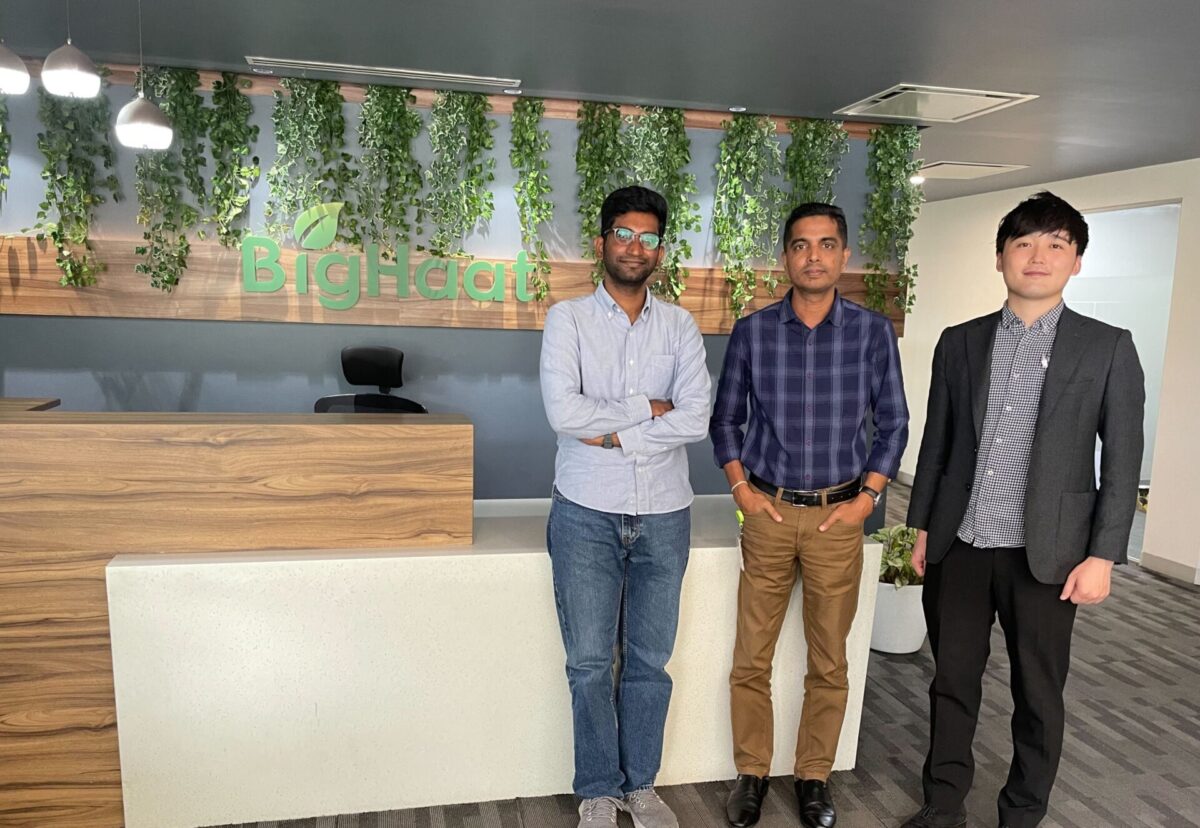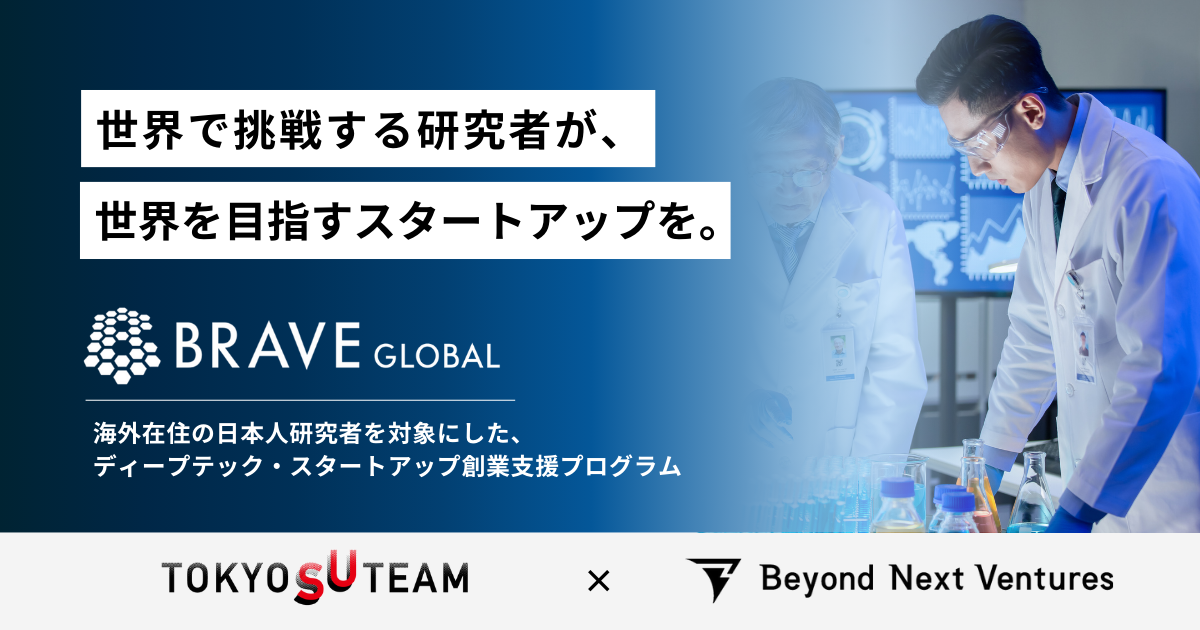In India, Agricultural sector plays a crucial role in the nation’s economy and food security. This sector is also known for facing numerous complex challenges. In this landscape, BigHaat is shaping the future of agriculture by using digital technologies. In this interview, Sateesh Nukala, CEO and co-founder of BigHaat, shares insights about the company’s rapid growth, potential for collaboration between Japan and India, and the organization’s approach to management.
Profile
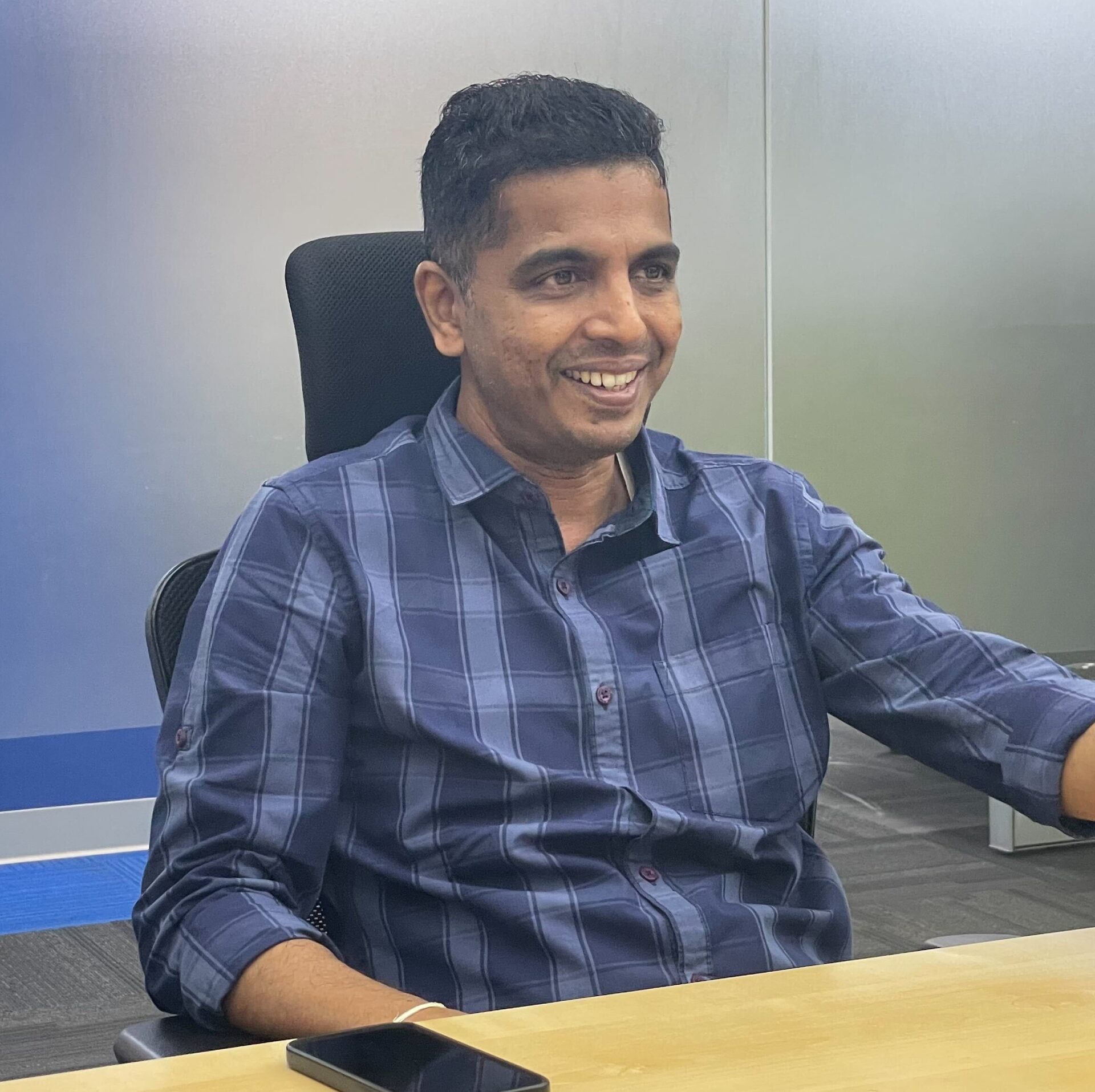
BigHaat CEO/Co-founder
Sateesh Nukala
Sateesh Nukala, CEO of BigHaat, comes from a humble rural family background, which has fueled his commitment to revolutionizing Indian agriculture. With a strong expertise in technology, he has driven BigHaat to the forefront of agri-tech, empowering farmers by integrating advanced solutions and building robust input and market linkages with a pioneering digital-first model. Under his leadership, BigHaat has prioritized sustainability and food safety, ensuring that farmers not only access high-quality inputs but also tap into global markets with traceable, safe, and sustainable products. Sateesh’s vision of transforming agriculture through innovation, market expansion, and a focus on sustainable practices continues to shape the future of Indian farming.

Contents
- “Determined to Save Indian Farmers” The Resolve of a Young Entrepreneur Raised in a Farming Family
- Supporting the Future of Indian Agriculture: Digital Ecosystems and Sustainable Growth Strategies
- Partnering with Japanese Food Companies for Global Expansion
- Hundred-fold Sales Growth in 4 Years! The Secret Behind Organizational Strength Driving Remarkable Success
- Focus on Sustainable Long-term Solutions, Not Short-Term Gains
- The Importance of Honest Feedback
“Determined to Save Indian Farmers” The Resolve of a Young Entrepreneur Raised in a Farming Family
Can you share the background of starting your business?
My aspiration to start this business began with one question: “How do we improve the lives of farmers?”. This is because I grew up in a farming family and have a first-hand understanding of the challenges farmers face. Agriculture in India is a highly traditional and fragmented sector, influenced by many complex factors such as small landholdings, diverse climatic conditions, and low literacy rates. Drawing from my 16 years of experience in the technology field, I believed that technology could significantly contribute to transforming agriculture, and thus, I launched this business in 2015.
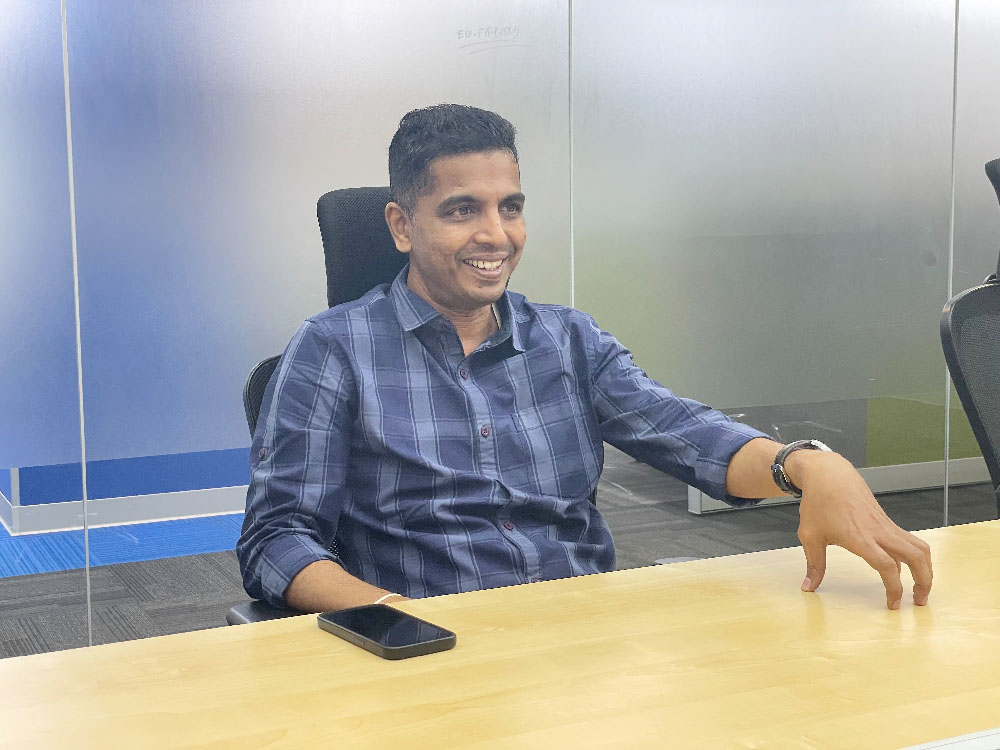
Why did you decide to receive investment from Beyond Next Ventures?
In order to continue growing as a startup, it is essential to secure funding from the right investors. An entrepreneur I know introduced us to Beyond Next Ventures. I was deeply impressed by their vision for India and their commitment to supporting the growth of our business. Thanks to the fund’s support, we built connections with business partners in Japan and we are actively exploring collaborations that will help us grow.
Supporting the Future of Indian Agriculture: Digital Ecosystems and Sustainable Growth Strategies
Could you tell us about your business?
We are engaged in the online sale of agricultural inputs in India, with a particular focus on the horticulture segment, which promises high returns. We provide farmers with price transparency and quality assurance, supporting the improvement of agricultural productivity. Additionally, we leverage data through our online platform to offer personalized advice to farmers. Moreover, we are working on optimizing the supply chain, building a network of warehouses and logistics across India to ensure timely delivery. Looking ahead, we plan to expand our market share in India by offering seeds, pesticides, and agricultural machinery. We also provide food safety solutions through the Sustainability Development Program (SDP).
Could you share your future business strategy with us?
We are scaling up the Sustainability Development program. It is a closed-loop system that leverages technology and products to build an end-to-end traceability and food safety framework. This program aims to enhance product quality, ensure food safety, and promote sustainability from both the farmers and climate perspectives. Our goal is to produce and supply high-quality agricultural products that meet the regulatory requirements of highly regulated markets, particularly Japan, South Korea, North America, and Europe. In the Japanese market, we aim to provide the highest level of food safety through innovation and backward integration, ensuring that agricultural products from India meet stringent global food safety standards. Through this, we will realize our greatest strengths “end-to-end traceability and a technology-driven food safety framework”.
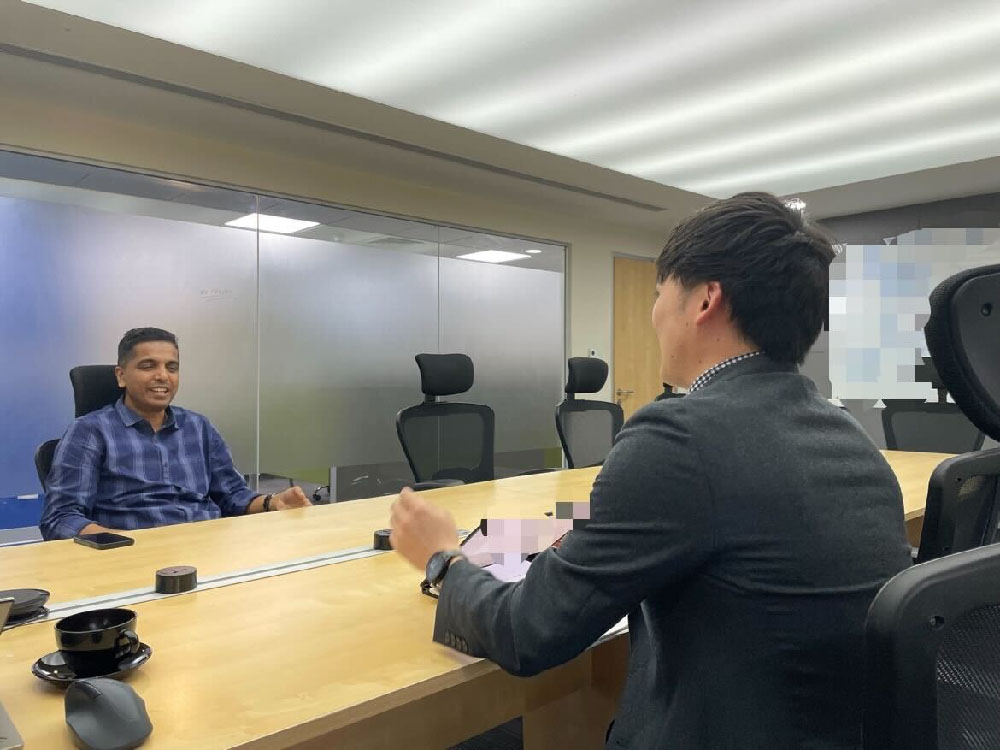
Partnering with Japanese Food Companies for Global Expansion
What kind of relationship do you hope to build in collaboration with Japanese companies?
We are advancing collaborations between food companies and technology companies. We are exploring ways to work with Japanese food companies to deliver products from India to the world that meet global food safety standards. Additionally, we are working with Japanese technology companies to explore cost-effective farm management solutions using IoT, focused on reducing labor costs and improving productivity.
What are your thoughts on the pros and cons of business collaborations with Japanese companies?
While building business collaborations with Japanese companies is a slow and steady process and decision making takes time, I appreciate the intent to build stable, reliable, and long-term relationships. In comparison, I find that business partners from India and other countries tend to make decisions at a faster pace. They are more inclined to take risks and quickly launch pilot projects.
Hundred-fold Sales Growth in 4 Years! The Secret Behind Organizational Strength Driving Remarkable Success
When managing your company, what is the most important focus area for you?
The most important aspect of running a company is to build a passionate team. Startups require a flat and lean organizational structure. We need individuals who resonate with the firm’s vision and are willing to walk the path together. When hiring new talent, I particularly focus on individuals who are curious, eager to learn, and come from humble backgrounds where they have faced challenging situations. I also believe in empowering leaders with authority and freedom, encouraging them to take on challenges. As I learned at Honeywell, it’s essential to create an environment conducive to learning and to always maintain the mindset of “starting from scratch”.
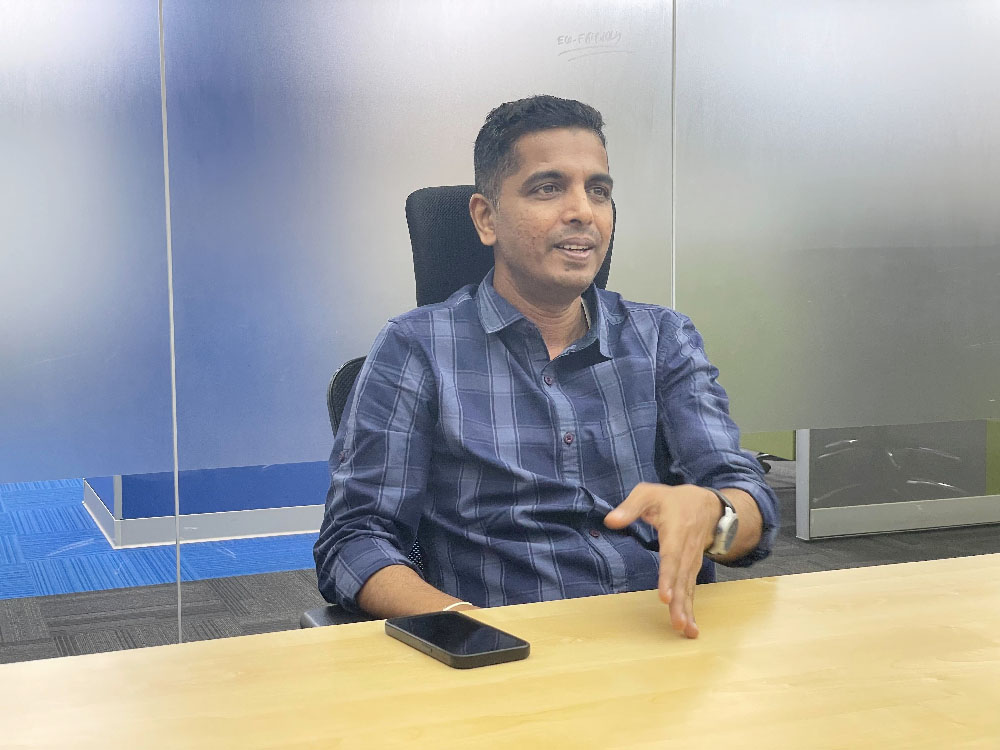
What do you consider to be the most important elements for building a strong team?
In building a strong team, behavior is more important than performance. Integrity, teamwork, and innovation are crucial tenets. Instead of relying on hero-like individuals, we focus on creating a strong culture that fosters right behaviors essential for a sustainable organization. There are times when we make the difficult decision to let someone go if they are not aligned with our culture. This is rooted in our belief that a team with a strong culture will ultimately leave a lasting legacy.
What do you keep in mind when recruiting new members to join the firm?
When bringing in new members, I focus not only on the necessary skills but also on ensuring that the individual aligns with our organizational culture. For example, we recruit talent from organizations that have a strong culture of collaboration, which allows us to secure people who can contribute to both the skillset and the culture of the organization. Additionally, it is important to build trust by understanding their actions and behavior. From a leadership perspective, I believe that this trust is one of the key factors in bringing people together.
Focus on Sustainable Long-term Solutions, Not Short-Term Gains
Could you tell us how your company works to enhance employee capabilities?
As a company, we are committed to enhancing our employee capabilities by constantly seeking new ideas and exploring ways to implement them. Our work revolves around the question, “How can we provide a better experience for our customers?” and we continuously strive for improvement based on this question. Rather than aiming for “the best”, we focus on being “better”, which allows us to always find room for growth and incorporate it into our daily work. Additionally, we prioritize discovering long-term, sustainable solutions over short-term profits and actively tackle complex problems.
The Importance of Honest Feedback
What are your thoughts on fostering open and honest exchanges of opinions between superiors and subordinates? For example, in countries like Japan and India, there is a tendency to avoid direct criticism, whereas in American companies, straightforward feedback is valued and can sometimes be beneficial. How should we create a culture where subordinates feel comfortable sharing their opinions with superiors in the presence of a power dynamic?
We share a culture similar to Japan, where open criticism is often avoided. However, through collaboration with American companies, we have come to understand the importance of direct feedback and are gradually adapting. Particularly in a startup environment, where resources are limited, it is crucial to quickly recognize and address challenges or failures. Therefore, we are adjusting to a feedback culture. When giving feedback, it is essential that the recipient understands its intent and purpose. While we are not yet as direct as American culture, we are moving in the right direction and learning to embrace a culture that values feedback.
Could you tell us about how your leadership has evolved throughout your career at Honeywell and BigHaat?
First, I made efforts to step out of my introverted nature and adapt my leadership style to meet the need for communication and networking. While at a large corporation like Honeywell, there was a strong emphasis on strict processes, in a startup environment, flexibility and adaptability are crucial, and I have adjusted accordingly. Additionally, collaborating and harmonizing with different functional teams is essential, and I have taken on the role of bringing these teams together. Finally, as a leader in a startup, it is important to be prepared for uncertainty and focus on developing the next generation of leaders.
